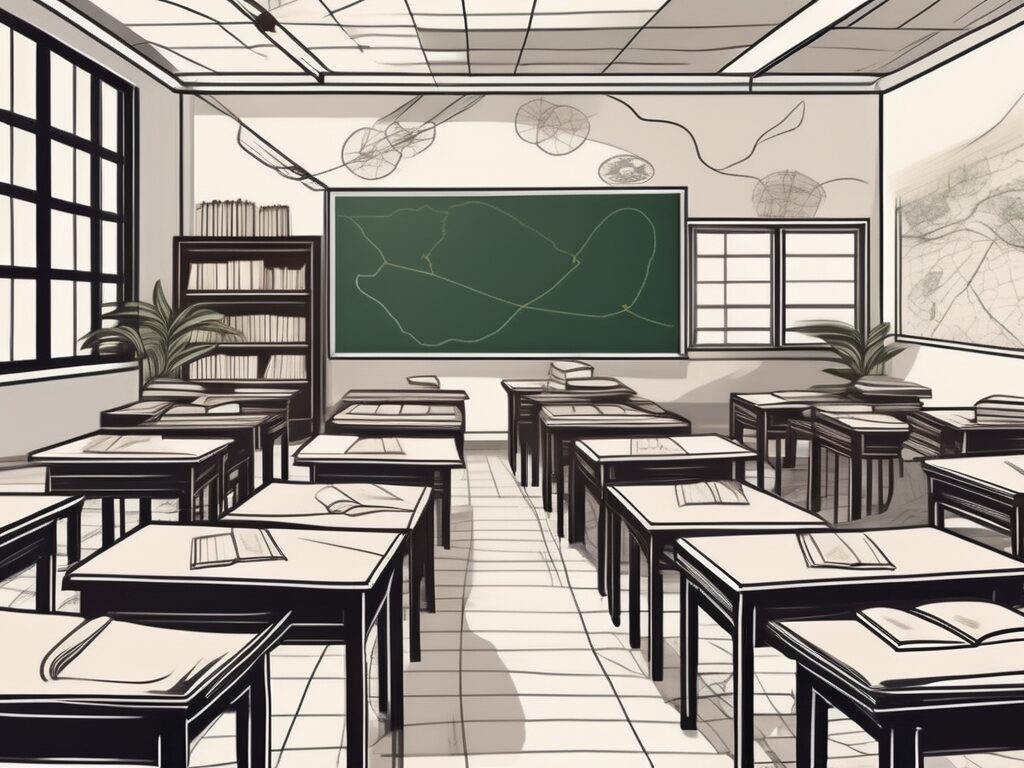Vietnam, a Southeast Asian country with a rich cultural heritage and a rapidly developing economy, is facing a number of challenges in its education sector. Despite the country’s commendable progress in achieving universal primary education, there are still significant hurdles to overcome in the areas of teaching and learning. This article delves into these challenges, offering an in-depth analysis of the issues at hand.
The Quality of Education
The quality of education in Vietnam is a pressing issue. While the country has achieved near-universal enrolment in primary education, the quality of teaching and learning is not always up to standard. This is particularly true in rural areas, where resources are scarce and teachers often lack the necessary training.
Comparatively, countries like Singapore and Japan, which are renowned for their high-quality education systems, invest heavily in teacher training and development. This disparity in quality is a significant challenge for Vietnam, as it strives to compete on a global scale.
Curriculum and Teaching Methods
The Vietnamese education system is largely based on rote learning, where students memorise information and regurgitate it in exams. This method of teaching, while effective for certain subjects, does not encourage critical thinking or creativity.
By contrast, many Western countries have adopted a more holistic approach to education, focusing on developing a broad range of skills and competencies. This difference in teaching methods is another challenge that Vietnam must address in order to improve the quality of its education.
Resource Inequality
Resource inequality is another major challenge in the Vietnamese education system. Schools in urban areas are often well-equipped with modern facilities and resources, while those in rural areas are left wanting. This disparity in resources can lead to a significant gap in educational outcomes.
For instance, in the UK, efforts are made to ensure that all schools, regardless of their location, have access to adequate resources. This includes providing additional funding for schools in disadvantaged areas. Vietnam could potentially learn from this approach to address its own resource inequality.
Teacher Training and Development
Teacher training and development is a critical aspect of any education system. In Vietnam, however, there is a lack of consistent, high-quality training for teachers, particularly in rural areas. This can lead to a disparity in the quality of teaching across the country.
Again, drawing a comparison with countries like Finland, where teacher training is rigorous and highly valued, Vietnam has a long way to go in improving its teacher training programmes. This is a crucial step in enhancing the quality of education in the country.
Language Barriers
English language proficiency is increasingly important in today’s globalised world. However, in Vietnam, English language teaching is often inadequate, particularly in rural areas. This can limit students’ opportunities for further study and employment.
In contrast, countries like the Netherlands and Sweden have very high levels of English proficiency, even among non-native speakers. This is largely due to their strong emphasis on language learning in schools. Vietnam could potentially adopt similar strategies to improve English language teaching and learning.
Access to Technology
Access to technology is another challenge in the Vietnamese education system. While urban schools often have access to computers and the internet, rural schools are often left behind. This digital divide can exacerbate educational inequalities.
For example, in South Korea, a country known for its technological prowess, all schools have access to high-speed internet and digital learning tools. This is something Vietnam could aspire to, in order to level the playing field for all students.
Conclusion
While Vietnam has made significant strides in education, there are still many challenges to overcome. From improving the quality of education and addressing resource inequality, to overcoming language barriers and increasing access to technology, the road ahead is long and arduous.
However, by learning from the successes and failures of other countries, Vietnam has the potential to transform its education system. The journey may be challenging, but the rewards – a better-educated, more skilled workforce – are well worth the effort.
Empower Your Teaching Career with IPGCE
Understanding the complexities of Vietnam’s educational challenges is just the beginning. If you’re an educator seeking to enhance your qualifications, overcome the barriers of international school requirements, and advance your career, IPGCE is your gateway to success. Our International Postgraduate Certificate in Education (iPGCE) is designed to elevate your professional development, connect you with a global network of educators, and provide you with the knowledge to adapt to diverse educational systems. Embrace the opportunity to join the UK’s #1 Teacher Training Course and witness a transformation in your teaching journey. Join now and be part of the change that shapes the future of education in Vietnam and beyond.

